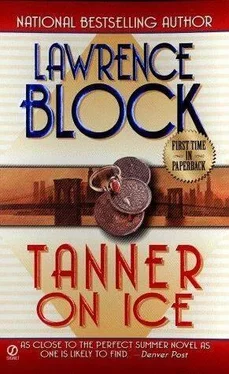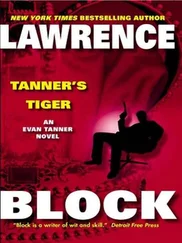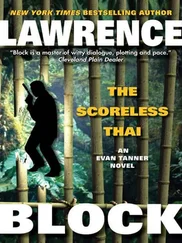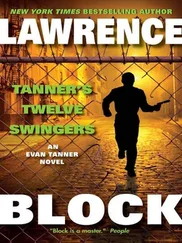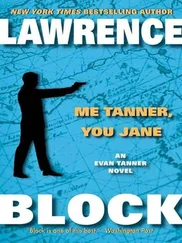All I told Spurgeon was that I hadn’t selected a hotel yet, and the look he gave me showed he thought I was daft. “We’ll see if they can find room for you at the Strand,” he said. “It’s like Raffles in Singapore, one of the great old hotels, and they’ve kept it up well. You’ll be happier there than at one of the sterile new hotels.”
I didn’t say anything, but when we pulled up in front of the Strand I shouldered my pack and told Spurgeon I thought I’d rather walk around first and see something of the city. “I might want to stay someplace a little more modest,” I said. “This looks awfully grand. I’d feel a little too casually dressed for the lobby.”
I was wearing khakis and a bush jacket, and he assured me my attire was perfectly acceptable. I said again that something smaller and more modest would suit me, and he caught on that the Strand was a little too rich for my blood.
“Smart man,” he said. “Save your money for rubies. Mind you don’t pay for a load of cut glass, now.”
“I’m not sure I’ll be buying any rubies. First I want to do a little sightseeing.”
“I suppose your first stop will be Shwe Dagon Pagoda.”
“Well, I don’t want to miss it.”
“No, and it’s quite the experience to be there at sunrise, but you won’t spoil it for yourself by trotting over there now. You know about shoes?”
“You can’t wear them into the pagodas.”
“Can’t even wear them on the grounds of the pagodas. Have to leave them at the outer gates. Not that you’ll have much chance of making a mistake on that score. There are plenty of signs to tell you to remove your shoes, and of course you’ll see other people’s discarded footwear. That should give you a clue.”
“I guess they take it pretty seriously.”
“The business of shoes? It’s the one thing guaranteed to set them off. Buddhists in Thailand have the same passion for bare feet, but they’re a little more relaxed about it. It’s only the holy areas of a Thai pagoda where you can’t wear shoes. Here it’s the whole shooting match.” He raised a hand, scratched the blaze of white hair at his temple. “That all you brought, that little backpack? Why, you can pop your shoes in there, carry them with you. Not that you have to worry about anyone walking off with them – or in them, eh? They’re an honest lot, the Burmese. Just a little bit queer when it comes to feet. Never point your feet at anyone, shod or bare. I suppose you know that.”
“It said something to that effect in one of the guidebooks.”
“The feet are considered unclean,” he said, “and small wonder after they’ve been traipsing through filthy pagodas all day. Never point them at a Buddha image either, although I can’t imagine how you would avoid it. Wherever you aim them, they’re odds-on to be pointing at a Buddha image, aren’t they?”
He wouldn’t let me split the cab fare with him, and after the poor-mouth act I’d pulled to get out of staying at the hotel, I couldn’t very well argue with him. I walked a block, checked my map, and set out for Shwe Dagon.
There was no dearth of other pagodas en route. As far as I could make out, the Burmese felt about pagodas the way Imelda Marcos felt about shoes. You can’t have too many of them. If you’ve got two fine pagodas standing side by side, why not build a third right across the road? And wouldn’t it be a neat idea to put a fourth one right next door, and… Well, you get the idea.
Shwe Dagon dwarfed them all. I walked barefoot down a long aisle lined on both sides with shops selling handcrafts and, yes, Buddha images, then rode up on an escalator, then walked some more and climbed some more to emerge into what has to be one of the wonders of the Eastern world.
There was a stupa in the central portion, of course, a sculpted upended cone, blindingly white and topped with a gold finial. Around it was an enormous marble courtyard, with shrines or chapels of one sort or another on either side. What you did, as far as I could make out, was walk around the courtyard circling the stupa. Every time you turned a corner another fantasy landscape struck your eye. It looked like the ultimate amusement park, but with no rides or food concessions and no lines to stand in.
It didn’t seem to matter whether you walked clockwise or counterclockwise. The locals, including the monks with their shaven heads and red robes, walked in either direction, and so did the camera-toting Westerners. The latter made up about a third of the company, and were the only ones who got charged admission. The Burmese got in free.
They weren’t there to worship. For all the innumerable Buddhas to be seen there – Buddhas made of every material, Buddhas painted or gilded or left unadorned, Buddhas sitting or standing or, yes, reclining – the Enlightened One was not adored or beseeched or asked to intervene. He was there in all his forms, as I understand it, to raise the level of one’s thoughts and improve one’s chances for a better life next time around. Meditating in a place of high spiritual power was, with alms giving and pagoda building, a way to make merit, and the more you made merit the higher you stood in the Reincarnation Sweepstakes.
You could also make merit by releasing captive animals, and while I was contemplating a sealed Buddha strung with lights like a Christmas tree, a woman came into view carrying a small cage made of twigs. She found a spot she liked, smiled gloriously, and opened the cage to release a white dove, who looked around suspiciously before trying his wings and heading off for the wild blue yonder. The woman followed him with her eyes, then walked off in the other direction.
All well and good, I thought. She’d made merit, and the bird didn’t even have to wait until his next life to have a better time of things. He was out of there, up up and away, free at last.
At least until some enterprising chap trapped him and caged him again, so that another seeker of merit could purchase him and let him loose.
Jesus, talk about the wheel of rebirth! There you had a bird’s-eye view of it. And, if all the people who took turns ransoming and liberating the bird were making merit, what was being made by the people who kept trapping the poor little bastard? Did they pile up demerits? Was the whole deal another zero-sum game, with every bit of merit gained offset by merit that someone else lost?
I decided not to worry about it. Maybe the bird catchers were earning merit in their own way by making it possible for their customers to perform a righteous act. Then again, maybe not. If nothing else, they were earning a few kyat. It was an odd little dance they were all doing, and I didn’t really get it, but these people didn’t need my understanding or my approval.
Maybe it wasn’t as crazy as it looked. In the West, most of us earned a living by taking in each other’s washing. Here they took in each other’s karma.
Same difference.
At four-thirty that afternoon I was sitting cross-legged in front of a sort of chapel immediately to the right of the western gate. I was pretty sure it was where I was supposed to be, but to my untrained eye one chapel looked rather like another.
Still, how hard should it be to find me? My fellow tourists were a busy lot, but the bulk of their activity consisted of either taking pictures or posing for them. When they weren’t behind or in front of a camera, they were gazing rapturously at something and trying to decide if they had enough film to record it for the folks back home.
The Burmese, on the other hand, did almost everything imaginable but take or pose for pictures. Families walked around, the children clutching their parents’ hands. Red-robed monks, ranging in age from small boys to old men, circled the central stupa in a solemn procession. And here a man howled and spat, and there a fellow puffed on a cheroot. Spitting and smoking were evidently okay, as long as you kept your shoes off.
Читать дальше
